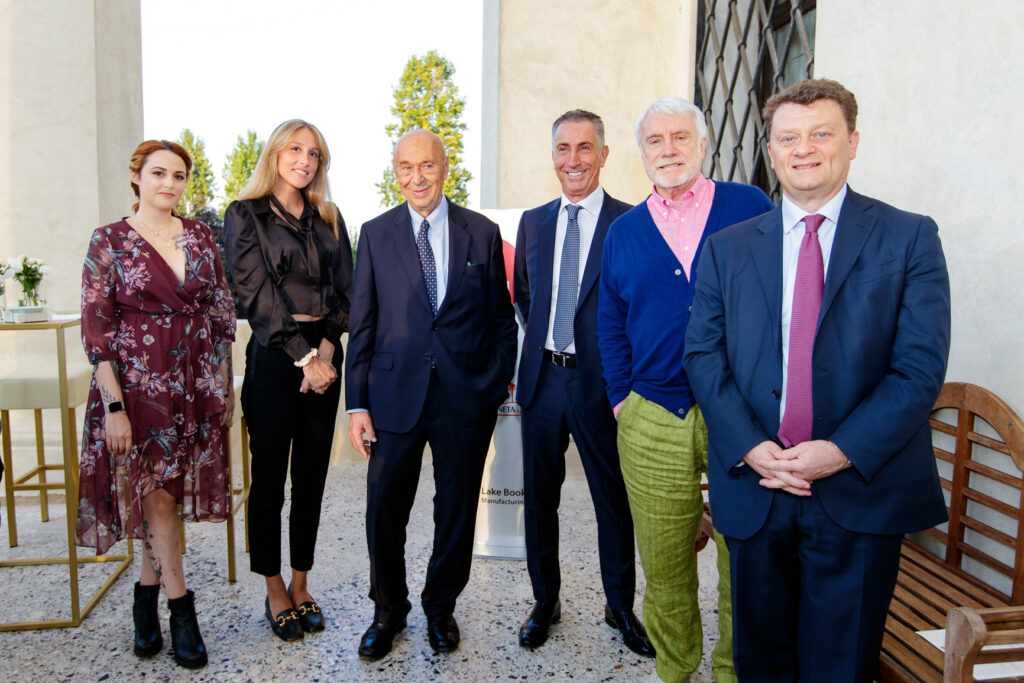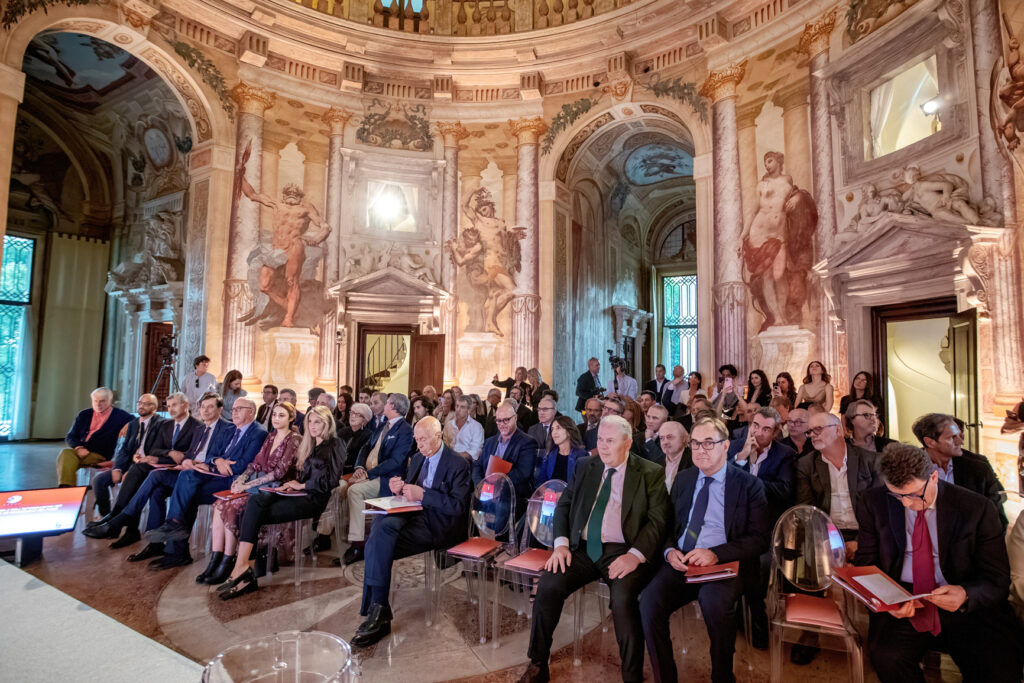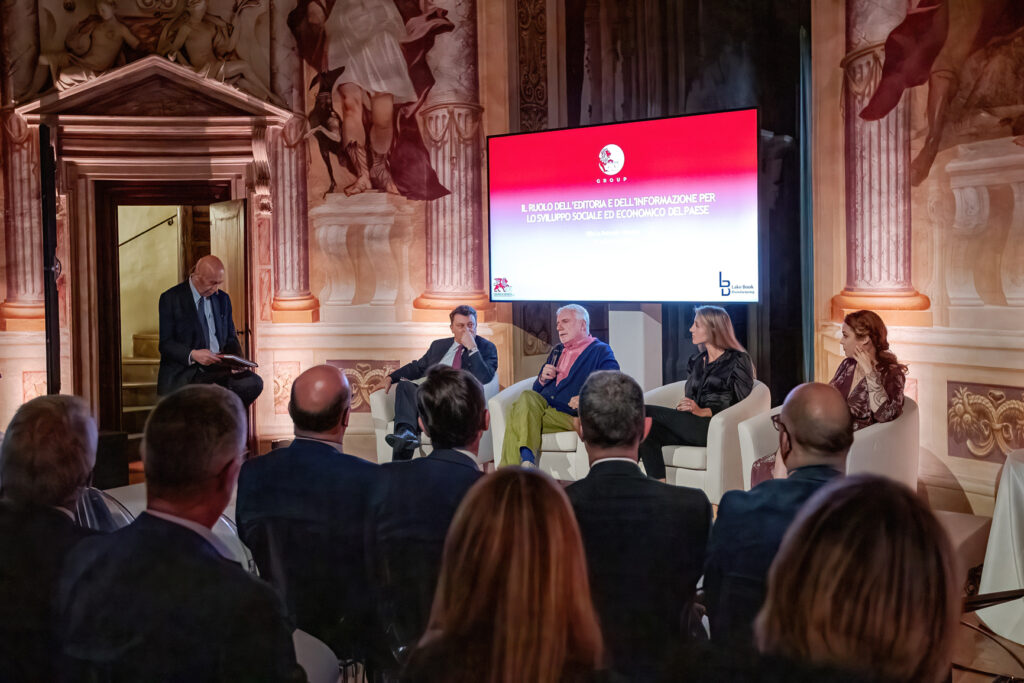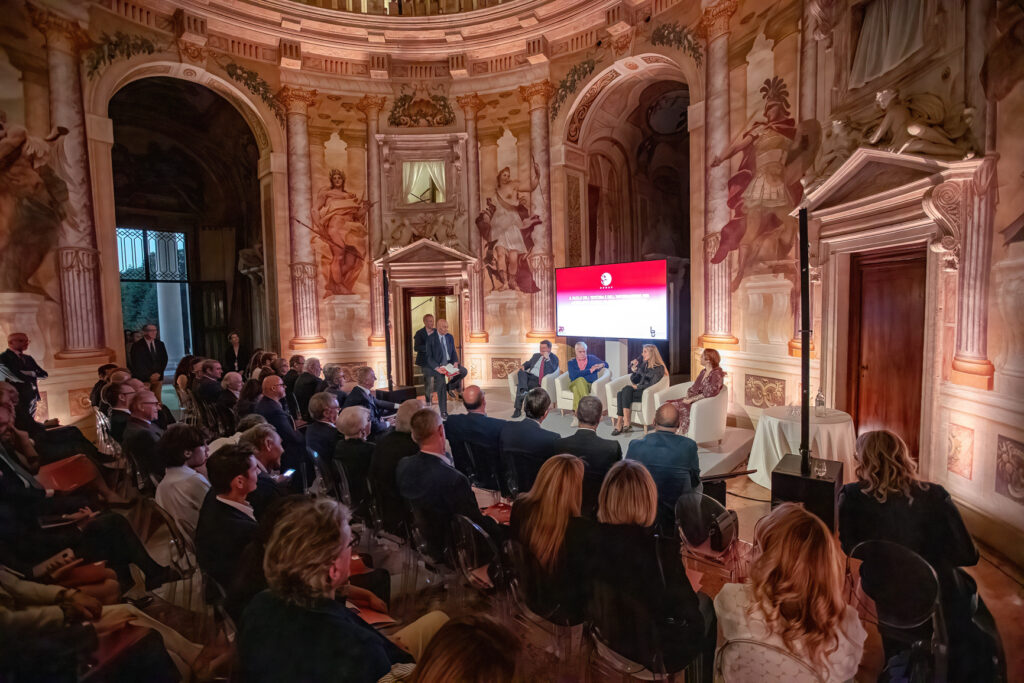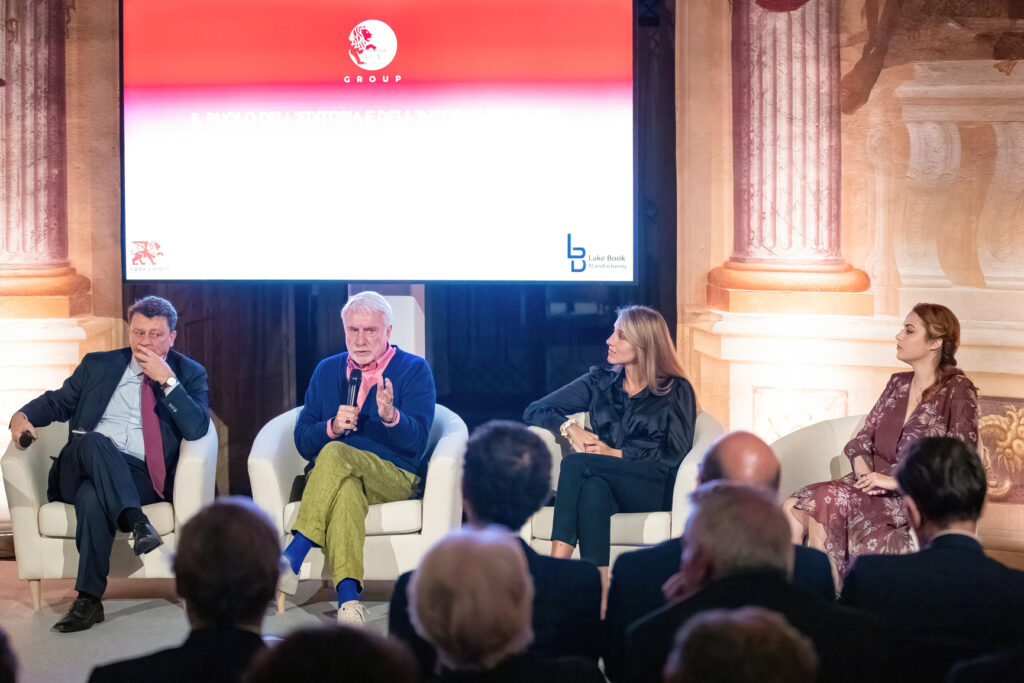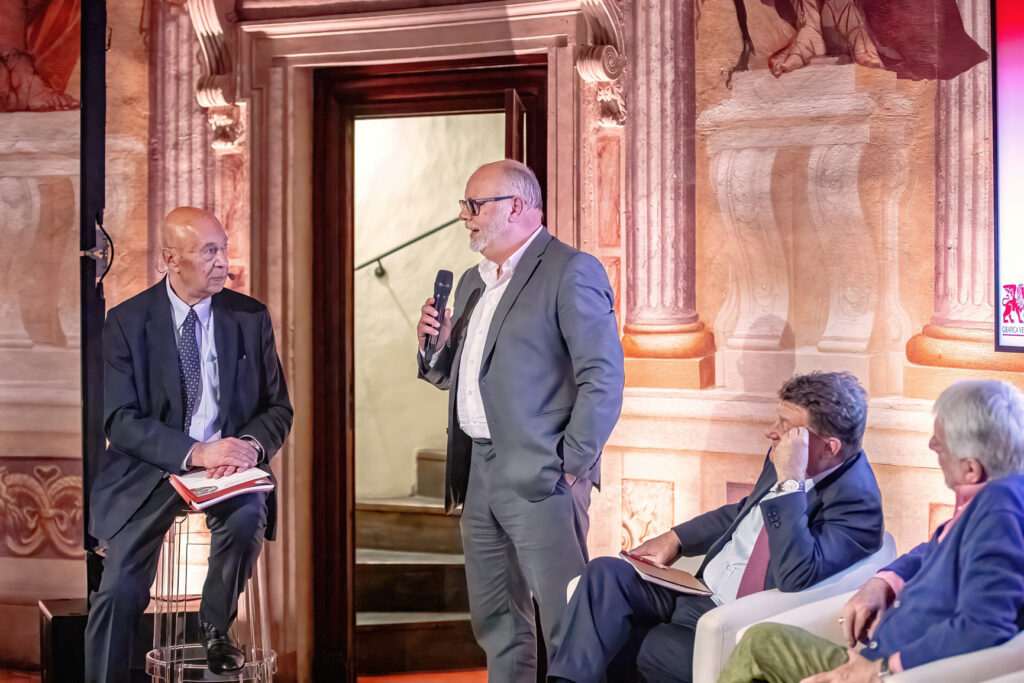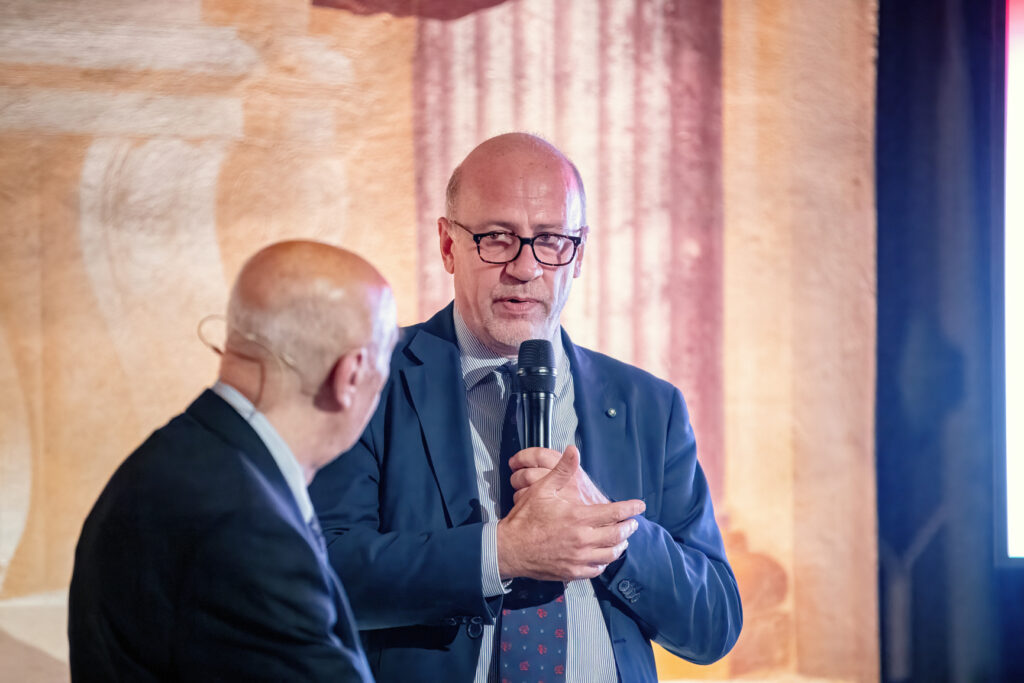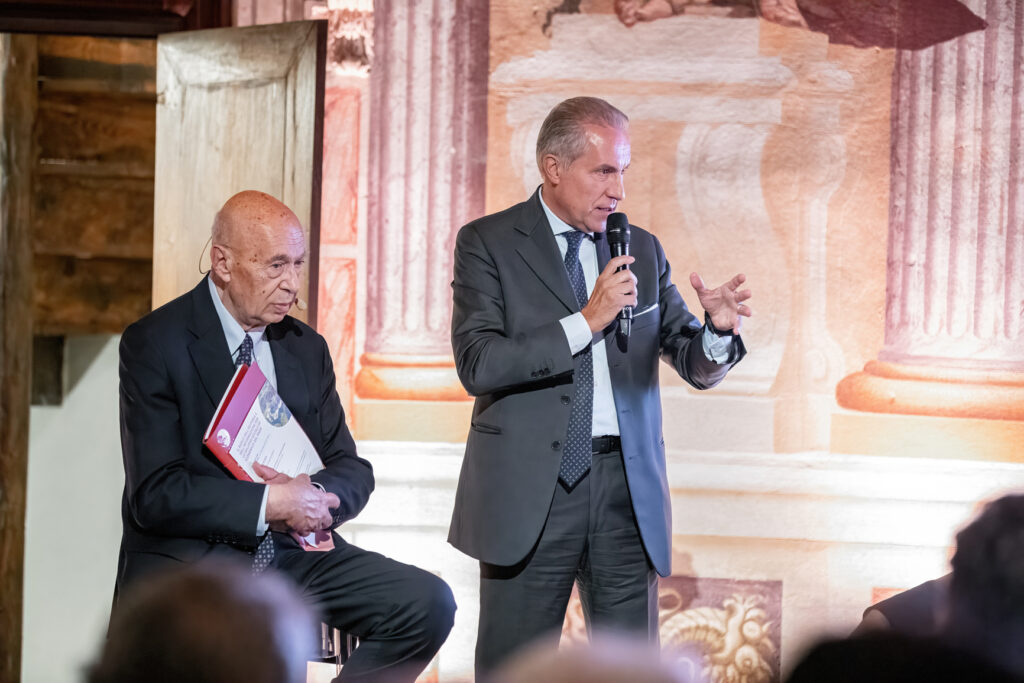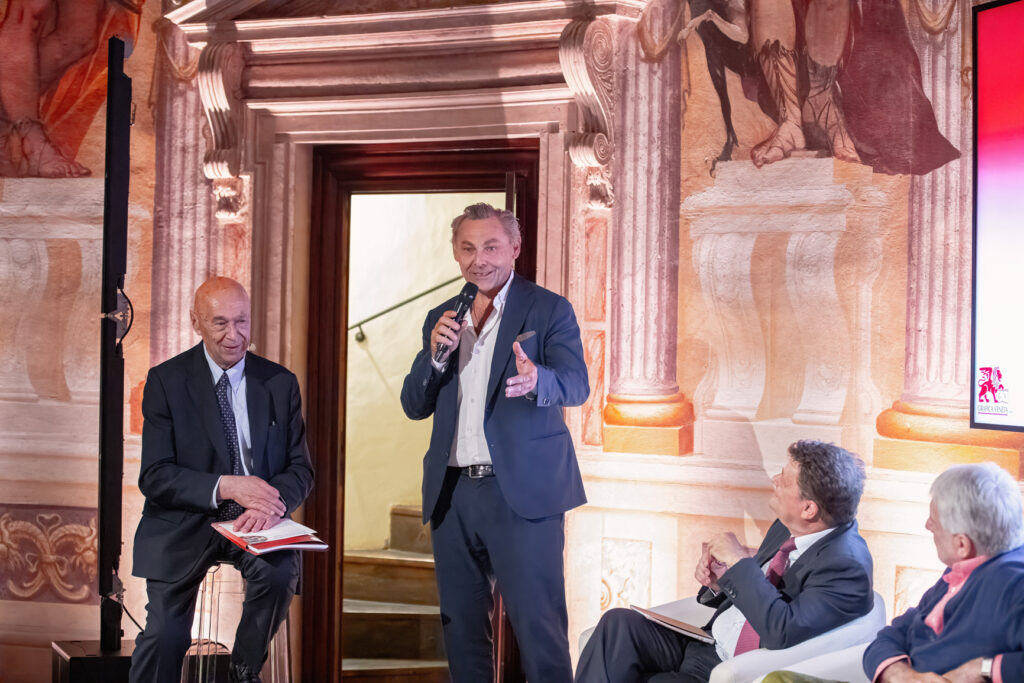What future is there for publishing in a country that does not read? This was the question that served as the backdrop for the event “The Role of Publishing and Information for the Country’s Social and Economic Development”, organized by GV Group, held on Friday, Sept. 29, at Villa La Rotonda in Vicenza.
The event, which was attended by representatives of Italy’s leading publishing groups, profiled itself as theGeneral State of Publishing, to discuss the state of the art of the industry, amid the challenges and opportunities of the present, and imagine new prospects and development possibilities for the future.
Opening the event was Fabio Franceschi, president of GV Group, who framed the scenario in which the industry is moving, rendering in numbers the extent of the crisis the book industry is experiencing in the country. In Italy, the annual number of copies per capita purchased is 3.2, significantly lower than in the United States (5.1), Germany (6), the United Kingdom (7) and France (7.5). This is a result of the steady loss of the centrality of reading in daily life, which is reflected in the conspicuous decline in the number of readers, down by more than three million in the past thirteen years. To date, according to ISTAT surveys, nearly two out of three Italians do not read a single book within a year.
Franceschi’s introduction was followed by a panel discussion, moderated by journalist Paolo Mieli, who has involved Alberto Barachini, Undersecretary of State to the Prime Minister’s Office with responsibility for information and publishing, the psychiatrist and writer Paolo Crepet, Andrea Gavosto, Director General of the Agnelli Foundation, the writer Erin Doom and film critic and content creator Gabriella Giliberti.
The discussion addressed the role of books and publishing as an instrument of democracy and development of the country’s cultural capital and, at the same time, a driver of the economy. Great space for reflection was then devoted to the future of reading and its protagonists, young people, highlighting the role and impact of new channels and cultural products on the demand for books, primarily social media: a threat, on the one hand, because of their impact on individual concentration capacity, but an opportunity, on the other, to create new communities of readers and generate real publishing cases, as recent experiences in the United States testify.
“Our relationship with time has changed. There has been a drastic reduction in our ability to wait, to concentrate and to isolate ourselves. Reading is a time of isolation, but we live with technological noise overpowering us.” Debuted Alberto Barachini, Undersecretary of State to the Prime Minister’s Office with responsibility for information and publishing. “Italians, in particular, compared with other European countries, have gone from being techno-enthusiasts to being techno-maniacs and, finally, techno-addicts. The disappointing reading data concerning our country indirectly tell the tale. The recovery of time devoted to reading, I believe, passes through education and, therefore, reading education to which young people can train if they are motivated. Meeting with school students, I realized the great level of curiosity in them, despite a now immersive digital life. But for this spark to become a passion for reading, in my opinion, we need to select books that deliver on their cover promises and to stimulate authors to produce books on topics such as, for example, artificial intelligence and digital education in a language and style suitable for children. Newspaper publishers could also play an important role: do you feel that today’s newspapers are written in a way that would be of interest to a kid who thrives on videos and social media conversations? On this point I will personally work to bring the issue to their attention. And I will continue, at the same time, to go to schools and talk to students”.
“Against a backdrop of shrinking demand for books on the one hand and a multiplicity of channels catalyzing people’s attention on the other, GV Group, through its presence in the European and North American markets, wants to bring its observatory to the table to stimulate reflection among industry players and identify new levers to retain and attract readers. The data tell us that the strongest readers are in the eleven to fourteen age group. The challenge of tomorrow will therefore be to stem the dispersion that we observe today starting in adolescence. By stimulating interest in reading and focusing on culture, publishing grows and Italy grows”Fabio Franceschi, president of GV Group, said in his introduction.
“The book is a very old object, but that does not mean it is outdated”, commented Paolo Mieli, moderator of the panel discussion. “The challenge today and tomorrow will be to adapt it to today’s times, needs and interests, taking advantage of the new tools that technology gives us and listening to young people, as we wanted to do today in this discussion. The future of this complex industry also depends on them”, concluded Mieli.
On the relationship between new generations and reading, the following spoke Paolo Crepet: “children’s estrangement from reading is a complex phenomenon with many factors, among which digital technology plays a central role, which has undermined certain cognitive mechanisms: one among them is memory capacity, which is essential for reading a novel”, stressed the psychiatrist. “Certainly social media are channels for reading, but it is important that we think about the long term. The mass market has generated a model of immediate consumption that creates very short-term phenomena: an author today lasts less than in the past because you always feel the need to discover another one right away. The history of literature has been built through long sellers, the great classics, yet I don’t know if today Calvino would be the Calvino we all know.”
Erin Doom, author of novels that have become literary cases, reasoned on how to bring young people closer to reading: “the most important thing for girls and boys at an age as complex as adolescence is to feel understood and represented. From my experience, I have learned to recognize an audience that needs to be heard and listened to, and I believe this is something that needs to be increasingly considered by those in the publishing industry”.



